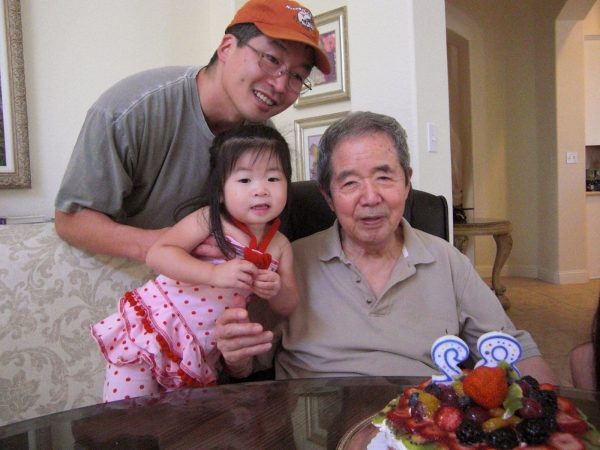Sanford, Walsh and Weld challenge Trump for the Republican vote
In the past few weeks, I have placed an emphasis on the Democratic candidates. The most recent Democratic debate in Houston, TX was a defining moment in the race. With only 10 candidates qualifying for the third debate, those who failed to make the stage have become irrelevant in the public eye. But, as the Democratic pool of candidates is shrinking, the Republican side is doing just the opposite — it’s slowly growing.
This is significant because when a party already has a candidate in office running for reelection there is not usually anyone in that same party opposing them, much less three. Mike Sanford, Joe Walsh and Bill Weld have all taken on the challenge of attempting to sway their party’s votes away from Trump.
A recent poll by Fox News on Sep. 29 reported Trump to be polling at 86%, with Sanford, Walsh and Weld each at 2%. Among the Republican candidates challenging Trump, there is a lot of diversity. Weld, who was the first Republican primary candidate to join the race, was named the “most fiscally conservative Governor in the country” by The Wall Street Journal while in serving as a two-term Governor of Massachusetts. He also served seven years in Ronald Reagan’s Justice Department and as a U.S. attorney. To learn more about his vision, read my political column from July. 1, which is linked here.
Bill Weld has also been very vocal from the beginning of his campaign about wanting to debate against Trump. However, The Republican National Committee has made no plans for a debate. In fact, on May. 3, 2018, the Republican Party voted to eliminate their debate committee entirely. Republican parties in Arizona, Kansas, Nevada and South Carolina have even decided to cancel their primary elections. According to CNN, the party refuses to endorse any candidate other than sitting president Donald Trump. Following this news, the three candidates wrote an Op-Ed to the Washington Post criticizing the Republican parties in four states from deciding to cancel their primary elections.
In their Op-Ed to the Washington Post, the three candidates promoted ideals of unity, criticizing Trump for being a “serial self-promoter” and “alienating our allies while embracing terrorists and dictators.” They went on to say that if the Republican Party “stands for nothing but reelection, it indeed stands for nothing.”
Walsh appeared on CNN Sep. 16 to talk about the elimination of the primary elections in these four states, even going as far as to call the Republican Party a “cult.” Walsh, the second Republican primary challenger to enter the race, has had a controversial past. After announcing his bid for presidency, some of his old tweets emerged, displaying racism and ignorance. Many have used his tweets to draw unfavorable comparisons between him and Trump. See my story from Sep. 1 (linked here) for more information.
Mike Sanford is the newest candidate on the Republican ticket. Like Walsh, he also has a past of controversy. While governor of South Carolina in 2009, Sanford publicly apologized for pretending to be hiking the Appalachian Trail, when in reality he had been in Argentina cheating on his wife. While his political career was destroyed after this incident, he has slowly been making a comeback, starting by winning a reelection to serve South Carolina’s first district in 2013. In many ways, his policy is very similar to that of President Trump’s. He supports cutting government spending and reducing the national debt. He also wants to replace the Affordable Care Act with private insurance and leave health care decisions to the citizen. As for immigration, he claimed to have had the idea to build a wall at the border long before Trump and wants to return to “common sense” immigration policy.
With a growing pool of Republican candidates, it will be interesting to see how much longer the party will continue to refuse to hold debates and primary elections. Feel free to leave any comments, opinions or questions down below and check back next week for another update on the 2020 presidential race.





